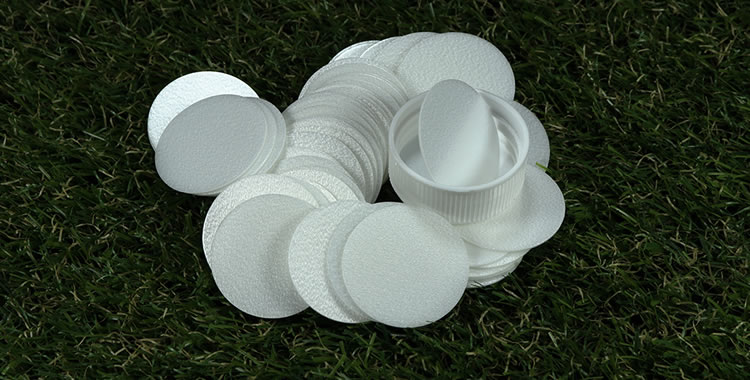
In the fast-paced world of consumer goods and pharmaceuticals, ensuring the integrity and safety of products is paramount. Induction wads and seals are indispensable components in packaging solutions, providing a reliable barrier against tampering, contamination, and spoilage. In this blog, we'll explore the significance of induction wads and seals, their applications across industries, and how they contribute to maintaining product quality and consumer trust.
Induction wads and seals are thin liners made from materials such as aluminum foil, polymer films, or paperboard laminates. They are designed to create a hermetic seal when applied to the opening of containers, such as bottles, jars, and tubes. Induction sealing technology utilizes electromagnetic induction to bond the seal to the container, creating a tamper-evident and leak-proof closure.
Food and Beverage: In the food and beverage industry, induction wads and seals play a critical role in preserving freshness, extending shelf life, and preventing contamination. Whether it's sealing jars of sauces, bottles of beverages, or containers of dairy products, these seals provide an effective barrier against moisture, oxygen, and external contaminants, ensuring that the contents remain safe and flavorful.
Pharmaceuticals: Induction sealing is widely used in pharmaceutical packaging to maintain the potency and efficacy of medications. By creating a secure seal, induction wads prevent tampering and unauthorized access, safeguarding the integrity of sensitive drugs and ensuring compliance with regulatory standards for pharmaceutical safety and security.
Cosmetics and Personal Care: Induction seals are also prevalent in the cosmetics and personal care industry, where product freshness and hygiene are paramount. Whether it's sealing jars of creams, bottles of lotions, or tubes of ointments, these seals protect against microbial growth, oxidation, and leakage, preserving the quality and efficacy of skincare and beauty products.
Lubricants & Chemicals : Induction seals play an integral part in the safe packaging of lubricants and chemicals. From normal paper back induction seals upto breathable induction seals it cater various safety and security for the products.
Tamper-Evidence: Induction seals provide a visible indication of tampering, reassuring consumers of product integrity and safety. Any attempt to remove or break the seal will be evident, helping to deter tampering and unauthorized access.
Leak-Proof Protection: Induction wads create a hermetic seal that prevents leaks and spills, minimizing product wastage and mess. This is particularly important for liquid and semi-liquid products prone to leakage during storage and transportation.
Extended Shelf Life: By sealing out moisture, oxygen, and contaminants, induction seals help extend the shelf life of packaged products, reducing the risk of spoilage and ensuring that products remain fresh and viable for longer periods.
In conclusion, induction wads and seals are essential components in modern packaging solutions, providing a robust barrier against tampering, contamination, and spoilage. Across industries such as food and beverage, pharmaceuticals, and cosmetics, Lubricants & Chemicals, these seals play a vital role in maintaining product quality, safety, and consumer trust. As we continue to prioritize product integrity and consumer satisfaction, the importance of induction sealing technology cannot be overstated, ensuring that packaged goods reach consumers in pristine condition, ready to be enjoyed and appreciated.
